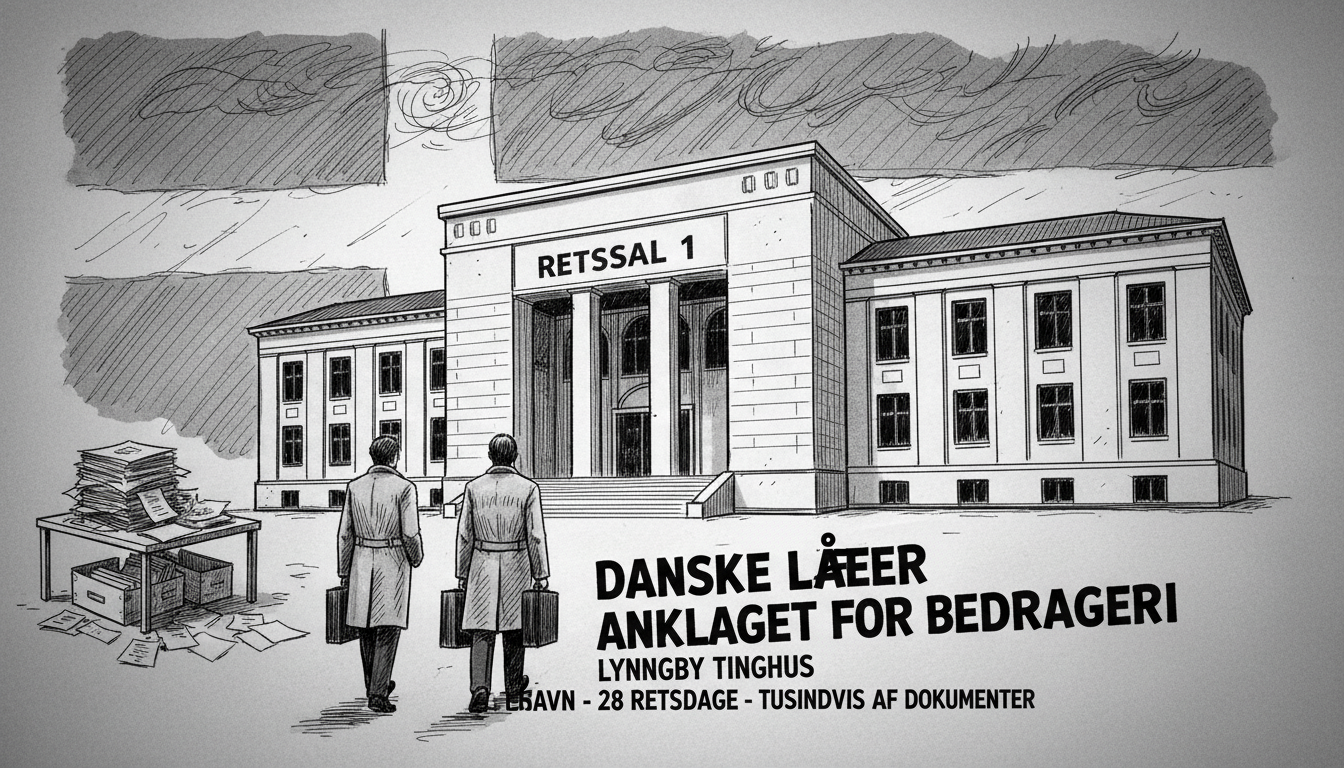A packed courtroom in Lyngby witnessed the beginning of a major fraud trial involving three doctors from Charlottenlund Medical Center. The case has drawn significant public attention with all spectator seats filled minutes before proceedings began. Defense lawyers submitted over 3,000 new documents just hours before the trial's commencement, causing visible frustration among judges and prosecutors.
This case represents one of Denmark's largest medical fraud investigations in recent memory. The trial is scheduled to span 28 court days, indicating the complexity and scope of the allegations. All three accused physicians sat flanked by their respective defense attorneys as two judges and three lay judges prepared to hear the evidence.
The timing of document submissions raises questions about legal strategy and case preparation. Last-minute evidence introductions can significantly impact trial dynamics and timing. Court observers noted the unusual volume of materials submitted just before proceedings began.
Medical fraud cases carry particular weight in Denmark's welfare system. The Danish healthcare model relies heavily on public trust and efficient resource allocation. When medical professionals face such serious allegations, it tests the system's integrity and oversight mechanisms.
Local integration advocates point to broader implications for professional immigrant communities. Copenhagen's medical sector includes many international practitioners whose reputations can be affected by high-profile cases involving Danish colleagues. The outcome may influence public perception of medical professionals across different backgrounds.
Danish authorities have intensified healthcare fraud investigations in recent quarters. This case follows several other medical billing investigations across different municipalities. The pattern suggests systematic attention to potential abuse within the welfare system's medical reimbursement structures.
The Charlottenlund area represents one of Copenhagen's more affluent neighborhoods, adding socioeconomic dimensions to the case. Wealth disparities and access to healthcare services remain ongoing discussions in Danish social policy circles. Cases involving privileged professionals can spark debates about equality within the welfare model.
Community leaders emphasize the importance of due process while acknowledging public interest in accountability. The trial's duration means findings won't emerge until later this year, but the proceedings will be closely watched by medical professionals, policy makers, and international observers alike.

